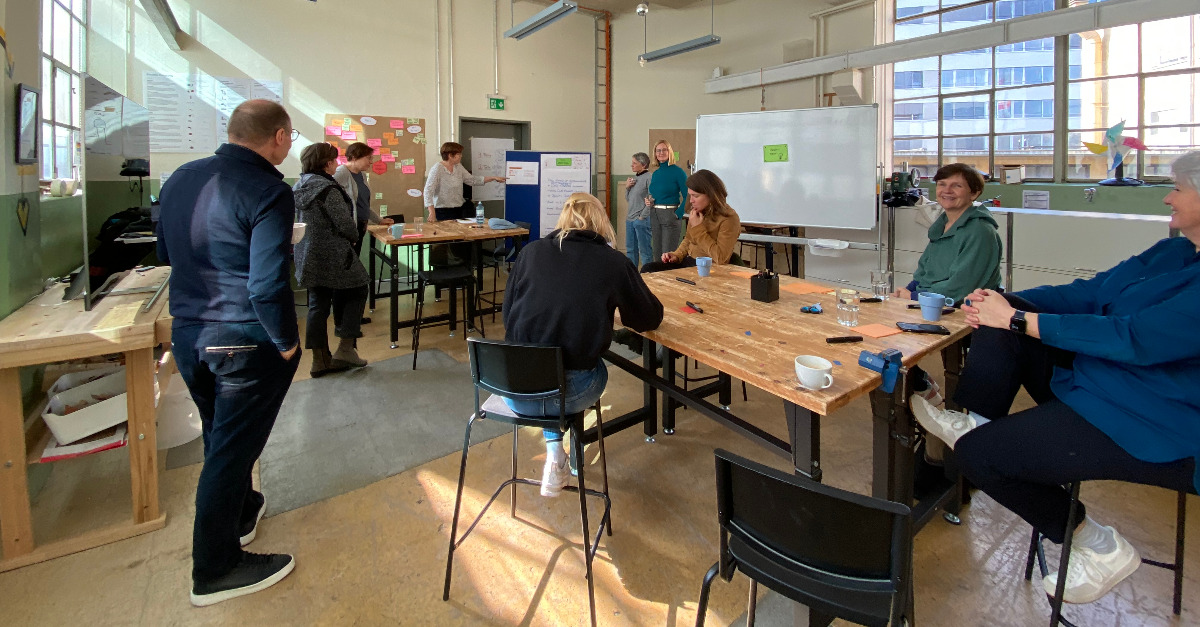Austria, Germany and Switzerland are joining forces to promote professionalisation: at the DACH network meeting, synergies were identified and joint projects launched.
Text: Hans-Peter Karrer
As last year, members of the Professionalisation Network from the German Institute for Adult Education (DIE), the Austrian Academy for Continuing Education (wba) and the Swiss Association for Continuing Education (SVEB) met in Zurich for a three-day conference. While last year’s focus was on exchange, this year the aim was to go one step further and focus on possible joint projects between the three partner institutions. The basis for this was provided by a cooperation agreement concluded between SVEB, DIE and wba after last year’s conference.
Regulations on the use of AI
Right at the start of the conference, when a future strategy for the network was being developed, it became clear that there was a great need for cooperation, especially when it comes to regulations on the use of artificial intelligence (AI) for educational institutions in the three countries. All three partner institutions have been working for some time on formulating guidelines and recommendations for working with AI and discussing them with the various educational institutions. However, the rapid development in this area makes it difficult to establish binding rules for dealing with AI. The conference participants benefited from the presentation of preliminary work, findings and results from the three partner institutions. Based on these broad considerations in all three countries, it is hoped that it will be possible to formulate a secure position on dealing with AI across national borders if necessary.
Cross-border recognition of skills
A large part of the conference was devoted to discussing current developments in the qualifications of trainers in continuing education institutions. The fact that the qualification systems in the three countries are very different in formal terms was already clear at the last conference. However, the skills of trainers that are assessed and certified during qualification only differ slightly. The conference participants also largely agreed that, with increasing digitalisation, additional skills need to be developed and assessed among trainers. It would be highly desirable and a major step forward if skills could be recognised across borders.
Joint participation in Erasmus+ project
To give the idea some momentum, the conference discussed participating jointly as a DACH region in an Erasmus+ project. The call for proposals for the project entitled ‘Vocational Education and Training: Development of joint VET qualifications and modules’ corresponds fairly closely to the discussions and ideas at the conference. The three partner institutions are considering jointly formulating the application ‘Transnational recognition of competences using the example of teaching competences for adult educators’ and inviting an additional partner institution from South Tyrol to join them. Specifically, transnational microcredentials clusters could be developed on individual topics related to the training of trainers, consisting of the intersections of models from the three partner institutions, the GRETA competence model, the AdA profile and the wba qualification profile.
Due to time constraints, the third topic at the conference on ‘Sustainability in Continuing Education’ could be positioned but not discussed in depth. It will be discussed in more detail later in the online meetings of the DACH network and, if resources allow, will also lead to concrete joint projects.

